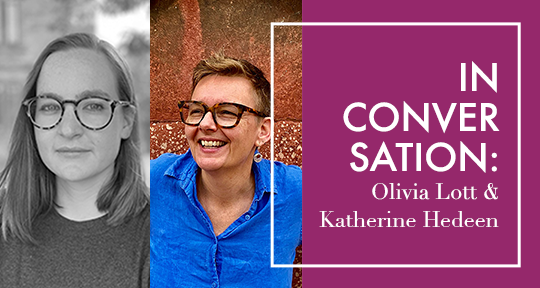Last fall, Katherine Hedeen and Olivia Lott published Almost Obscene (Cleveland State University Poetry Center), a wide-ranging selection of poems from Colombian poet Raúl Gómez Jattin (1945–1997), introducing English readers to the poet for the first time.
Gómez Jattin’s poetry defies the contemporary impulse to categorize a book of poems or its poet in any straightforward fashion. A Colombian poet of Syrian descent, born in Cartagena, Gómez Jattin wrote from the margins of his literary culture on topics ranging from mental illness to homosexuality to drug use to Greek mythology; the distance between the poet’s life and his subject(s) often seems imperceptible.
I recently had the chance to interview both translators over a series of emails, during which we discussed the collaborative process of translating this book together, as well as the “deceptively simple” queer poetics of Gómez Jattin, and exactly where in the body his poems ‘live.’
M.L. Martin (MLM): Thank you, Katherine and Olivia, for making time to discuss this powerful and important book, Almost Obscene, which is out now with Cleveland State University Poetry Center. I’m always curious about how translators find and connect with their translation projects. How did you first encounter Raúl Gómez Jattin’s work? And what aspects of his work—and his biography as a marginalized queer Colombian poet of Syrian descent—did you wish to share with English readers?
Katherine M. Hedeen (KMH): I first heard of Raúl when I traveled to Medellín, Colombia in 1997 to attend the International Poetry Festival. He had been a good friend of Cuban poet Víctor Rodríguez Núñez, whom I was traveling with, and he had just died. It was big news at the festival. Raúl was a controversial figure in Colombian poetry, as you can imagine, and the rebel rouser organizers of Medellín’s poetry festival had supported him. I got to know his work through Víctor; which I found both compelling and heartbreaking. He had been on my list of poets I wanted to see in English translation. Fast forward to 2012. Olivia was a student in my literary translation course at Kenyon College. Back then, I’d assign each student a poet to translate, normally one who hadn’t been translated yet. I assigned Raúl to her. She loved the work and eventually her manuscript became her honors thesis in Spanish at Kenyon. At this point, the project was all hers. I had only been involved as her thesis advisor.
Olivia Lott (OL): Just as Kate says, Raúl was the first poet I translated, as part of her literary translation course and then honors thesis. The project took me to Colombia, where I taught English through the Fulbright Program and spent weekends and holidays traveling around the country to meet poets. My year there gave me time to read a ton of Colombian poetry and to get a sense of the literary scene. I always kept Raul’s work in mind. I was struck by how he was often excluded from national anthologies, and how even in Cartagena (the city where he lived most of his life) his work was difficult to track down in local bookstores. Through this experience I began to translate other poets, but I never abandoned the Raúl project, in part due to the possibility of “righting” his legacy through giving his work a second life in English-language translation.


